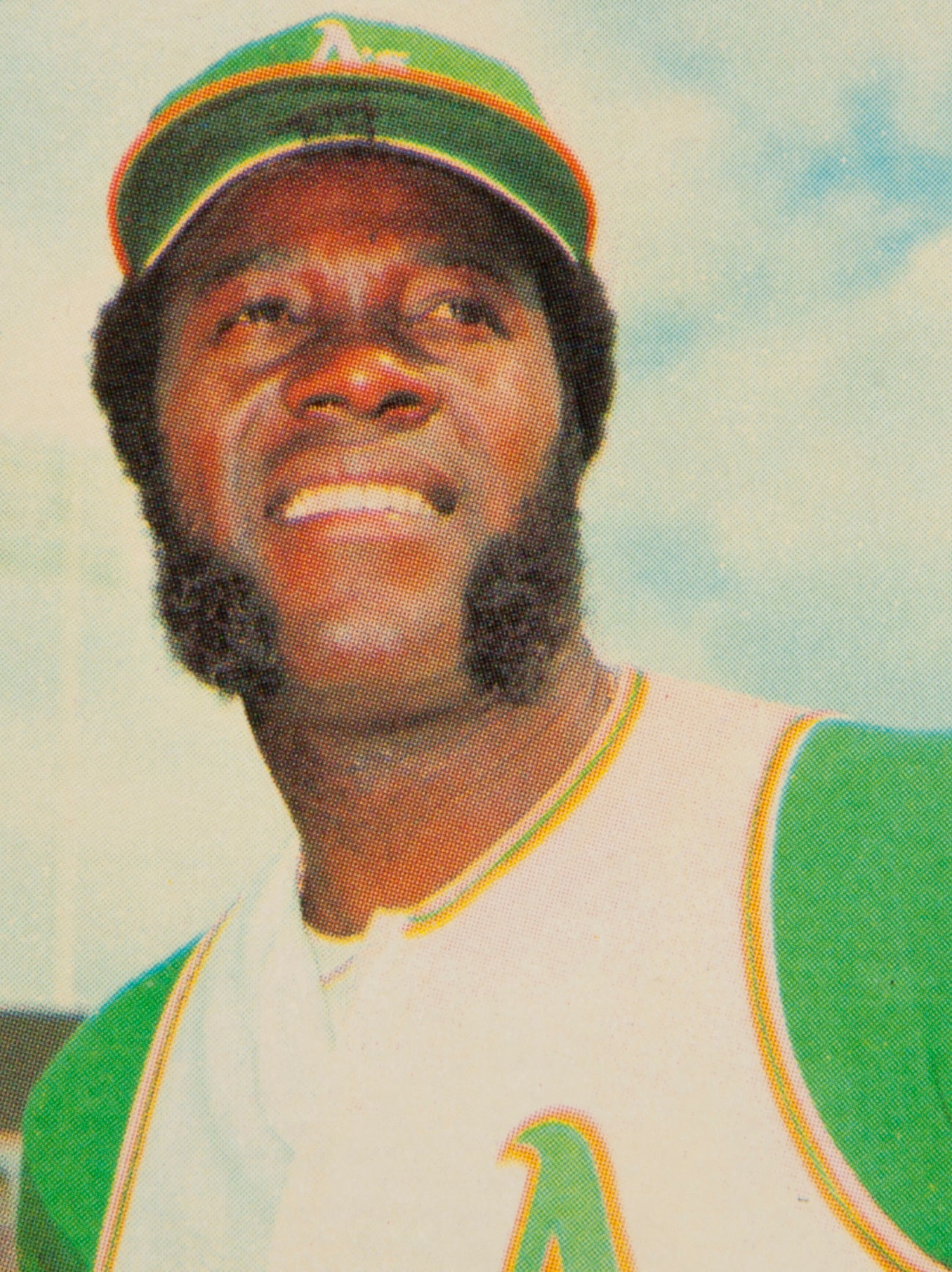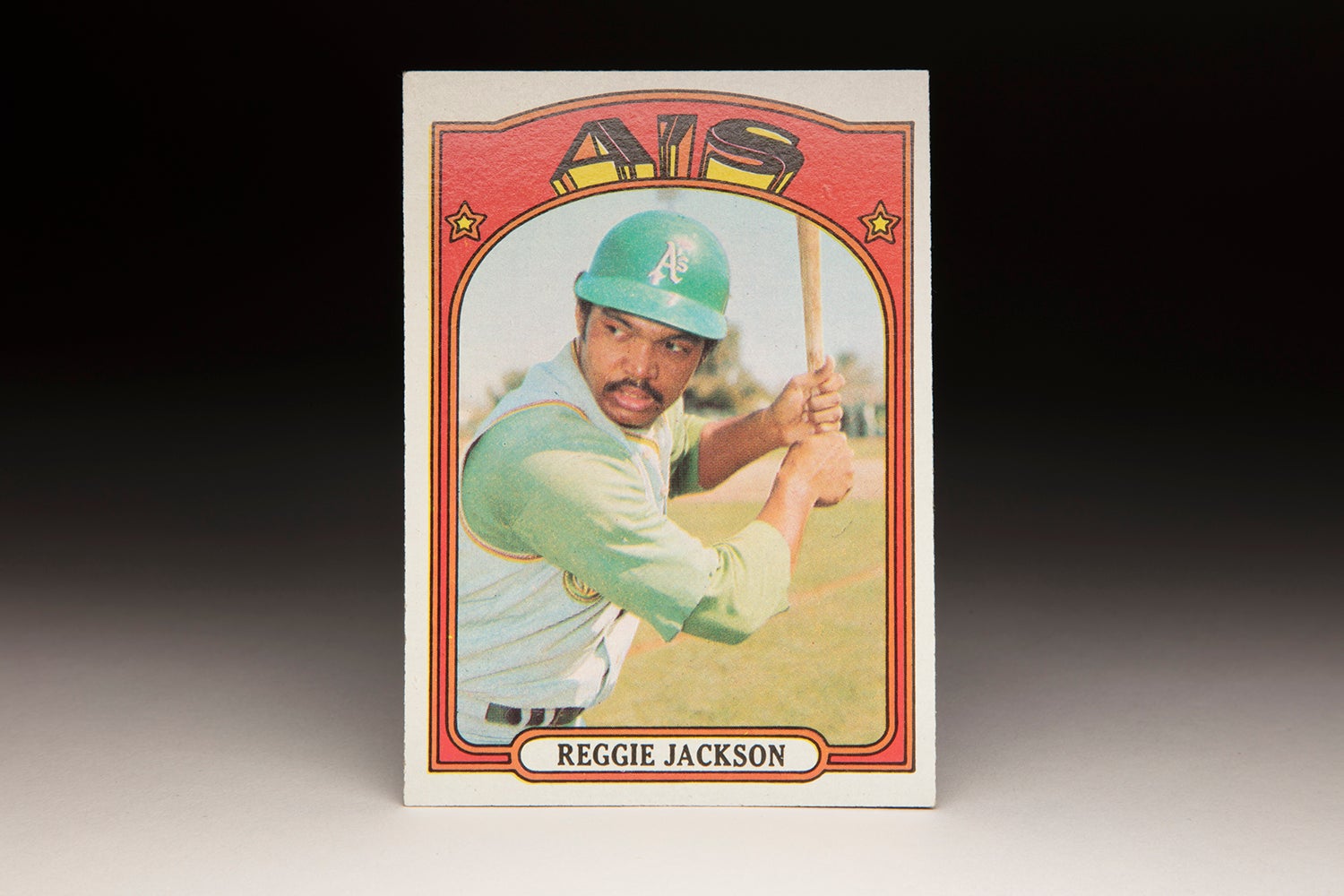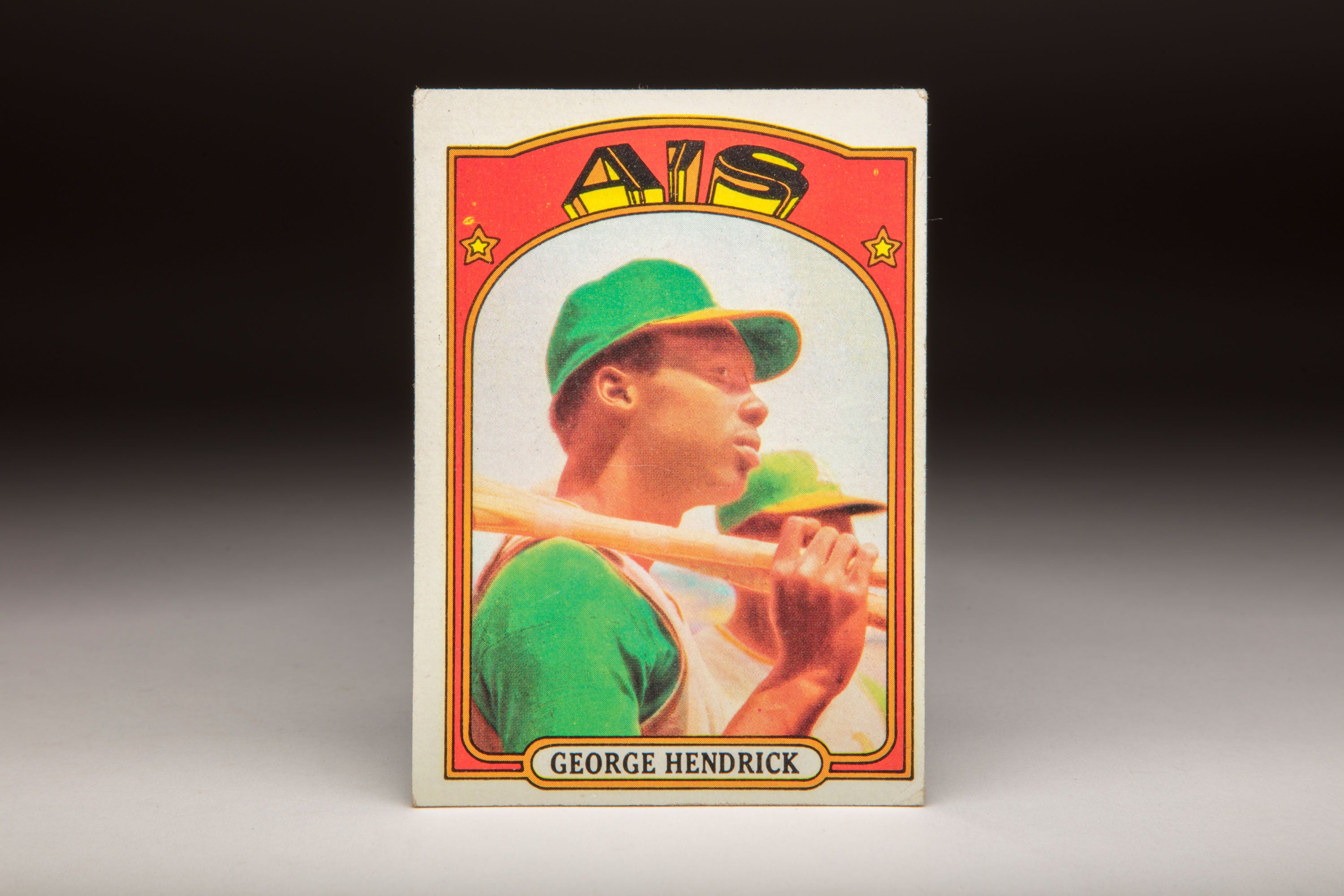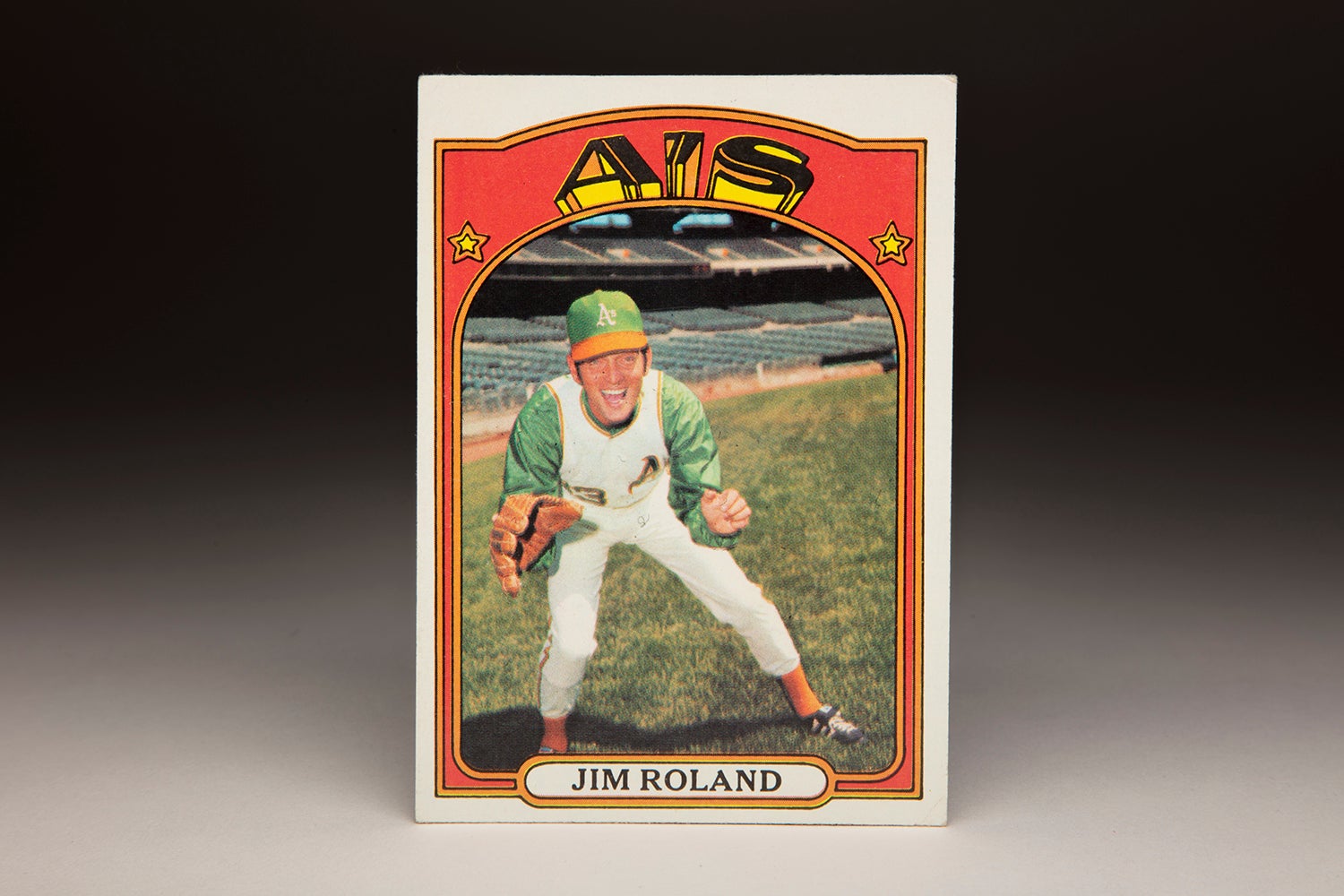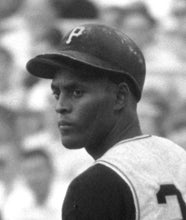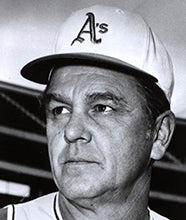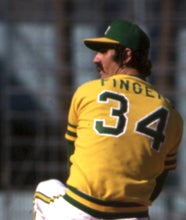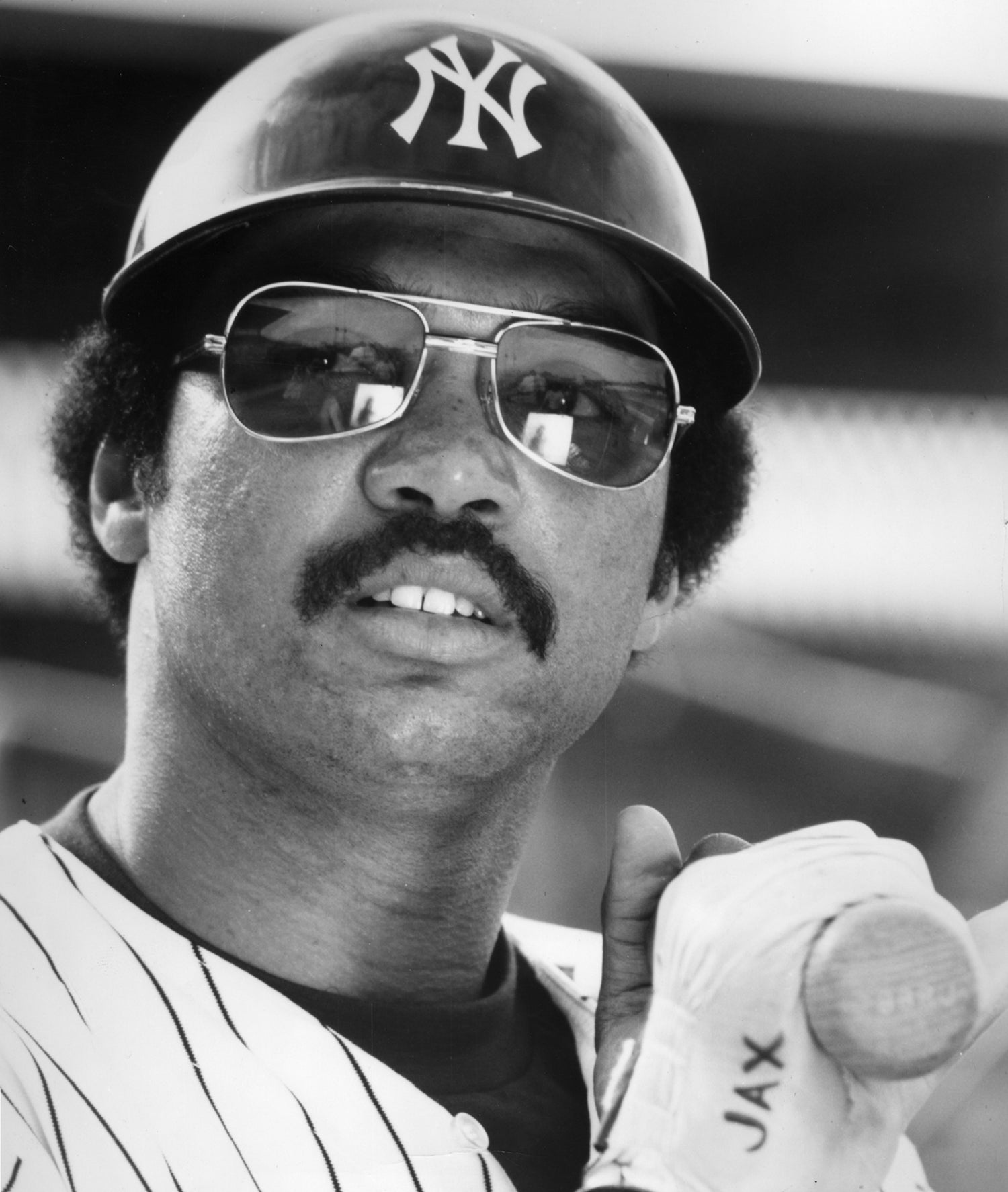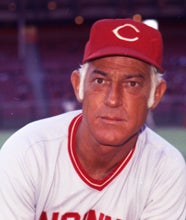- Home
- Our Stories
- #CardCorner: 1972 Topps Ángel Mangual
#CardCorner: 1972 Topps Ángel Mangual
He was the deciding factor in one of the greatest innings in World Series history – the ultimate move in a flurry of substitutions that launched a dynasty.
Ángel Mangual played in only seven big league seasons. But in three of those, the Oakland Athletics were world champions. Those three rings might have never happened without the wiry outfielder from Juana Diaz, Puerto Rico.
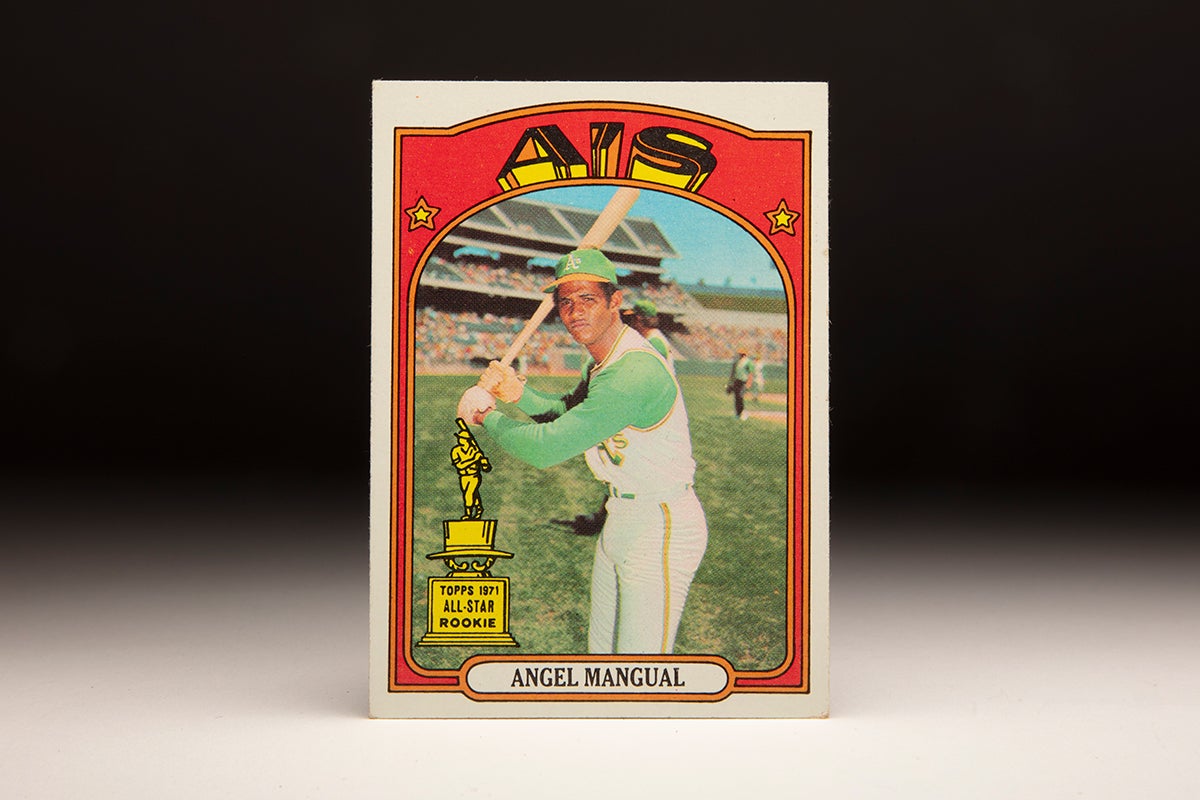
Born March 19, 1947, Ángel Luis Mangual grew up in a baseball family. Like so many others in Puerto Rico, Mangual idolized Roberto Clemente, who had debuted with the Pittsburgh Pirates in 1955.
Mangual and his brother Pepe, who played in the big leagues from 1972-77, emulated Clemente on and off the field.
“All I thought about (in the minor leagues) was meeting Roberto Clemente and Willie Mays and hitting against Bob Gibson and Tom Seaver,” Pepe Mangual told the Burlington (Vt.) Free Press in 1984.
Ángel Mangual was five years older than his brother and signed with Clemente’s team, the Pirates, in 1965. The Pirates sent Mangual to Class A Clinton of the Midwest League in 1966, where he hit .228 in 80 games. He moved up to Raleigh of the Carolina League in 1967 and hit .285 before struggling at Double-A York in 1968 in the pitcher-friendly Eastern League, hitting .249 with a .313 slugging percentage in 128 games.
But when Mangual returned to York in 1969, he nearly won the Triple Crown – hitting .320 (losing the batting title by three points) with 26 homers and 102 RBI in 133 games. York won the league title, the first time the southeastern Pennsylvania town had been home to a pro baseball champion in 44 years.
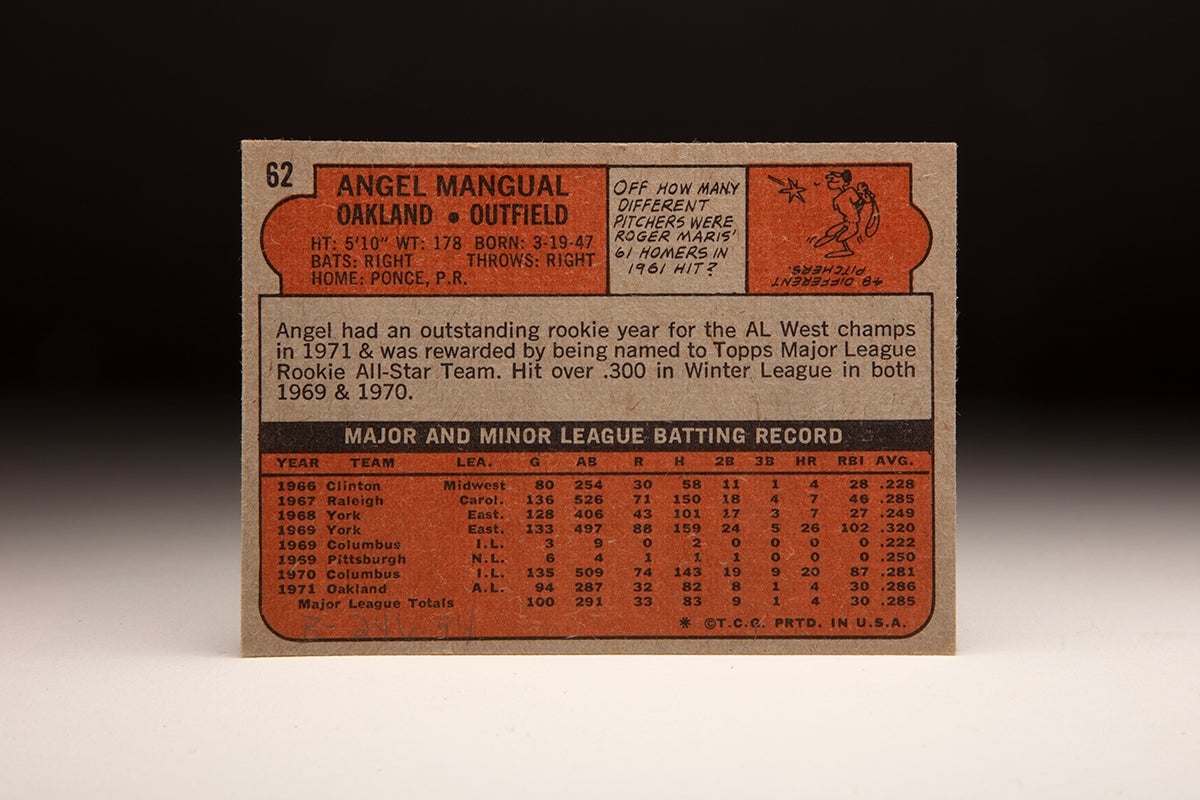
Mangual’s season earned him a promotion to Triple-A Columbus and then all the way to Pittsburgh, where he debuted with the Pirates on Sept. 15 against the Phillies. The next day, Mangual recorded his first big league hit – a ninth-inning double off Philadelphia’s John Boozer.
Mangual played in six games for the Pirates that month, coming to the plate four times.
In 1970, Mangual was the last Pirates player to agree to a contract for the season. But Mangual did not make the Opening Day roster and spent the entire season with Triple-A Columbus, batting .281 with 20 homers and 87 RBI in 135 games.
On Oct. 20, Mangual became the “player to be named later” from a Sept. 14 deal that sent Jim “Mudcat” Grant from Oakland to Pittsburgh. The trade moved Mangual from one talent-rich organization to another, but he would be joining an Oakland team that was on the cusp of a historic championship run.
Mangual made the Athletics’ 1971 Opening Day roster as a reserve outfielder, soon entered into a center field platoon with lefty-hitting Rick Monday and pushed his batting average past the .300 mark in early June. Athletics manager Dick Williams took to calling Mangual “Little Clemente” – which pleased Mangual.
“When Dick Williams gave me the name ‘Little Clemente’ it changed me inside,” Mangual told the Oakland Tribune. “It gave me a lot of confidence in myself.”
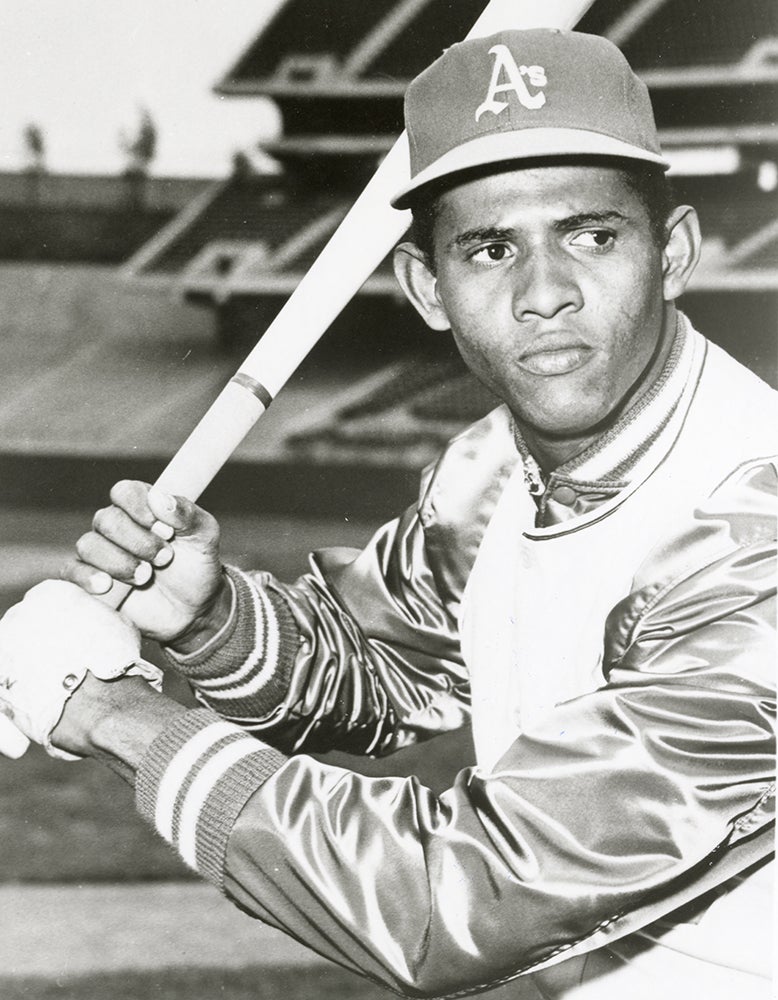
On July 9, Mangual ended what was the longest scoreless game in American League history by singling home Curt Blefary in the bottom of the 20th inning to give the A’s a 1-0 win over the Angels. The game featured 11 shutout innings – and 17 strikeouts – by Oakland starter Vida Blue and 12 shutout innings by California starter Rudy May. Rollie Fingers added seven shutout frames in relief for the A’s.
But it was Mangual who earned the praise of Athletics owner Charlie Finley, who celebrated with the team in the Oakland clubhouse and instructed Mangual to purchase a $200 suit and charge it to the team.
Mangual finished the 1971 season hitting .286 with 30 RBI in 94 games. The Athletics won the American League West title, and Mangual started all three games in the ALCS vs. the Orioles: Two in center field and one in left. He went 2-for-4 with two RBI in Game 1 but was hitless in the final two contests as Baltimore swept the series.
Mangual, who finished third in the AL Rookie of the Year balloting following the 1971 campaign, entered the 1972 season as the Athletics’ starting center fielder after Monday was traded to the Cubs in the offseason.
Mangual credited Monday with helping him learn the intricacies of playing center field.
“He taught me how to look at the catcher, to see how he moves behind the plate if it’s going to be an inside pitch or an outside pitch, so I can get an idea where it’s going to be hit if the batter hits it,” Mangual told the Oakland Tribune. “There’s not enough I can say about Monday. He’s a good guy.”
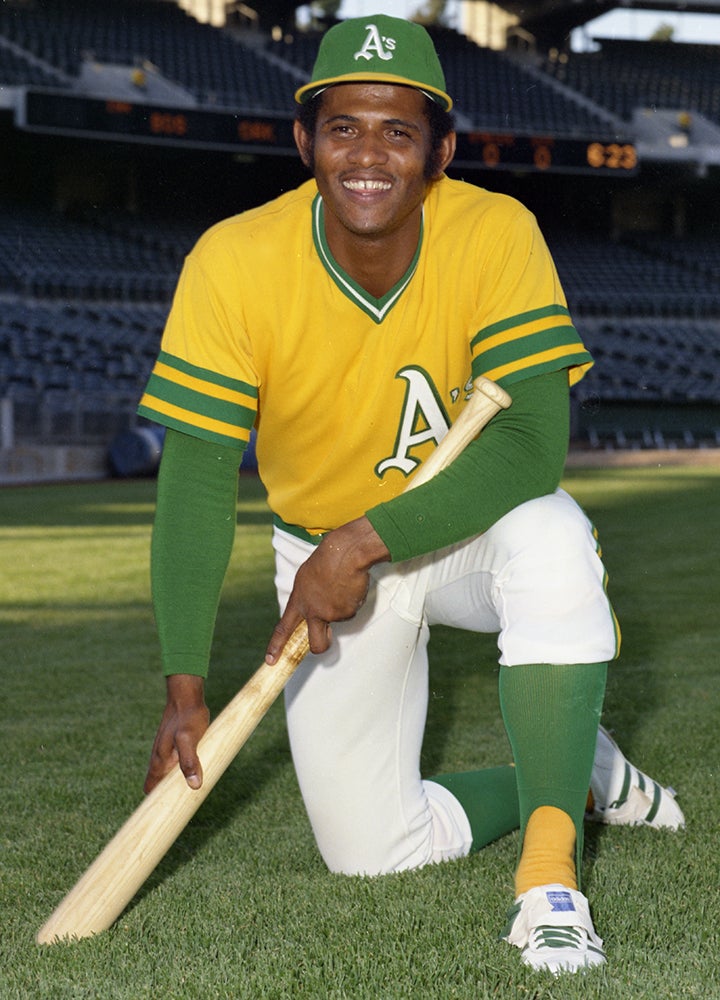
Mangual missed the team’s first 11 games with a left leg injury – spending the first two weeks of the season rehabbing at Triple-A Iowa – but was then penciled into the center field role by Williams for most of the month of May. But by June, Williams had moved Reggie Jackson to center field and put Mangual in right field after Mangual suffered repeated fielding issues.
“Every fly ball hit to him was an adventure,” Williams wrote in his 1990 book “No More Mr. Nice Guy” with Bill Plaschke. “Once he told me that I made him nervous. I told him: ‘Wrong, Ángel. You make me nervous.”
Mangual also drew the ire of Williams for insubordination and for tossing his helmet, which resulted in a fine.
“What happened between me and Dick Williams was nothing,” Mangual told the Oakland Tribune after Williams left the team following the 1973 season. “I think I talked too much (in 1973). Jesús (Alou) and Reggie and a lot of guys told me to keep my mouth shut this year and just do my job.”
Mangual endured a 4-for-45 stretch at the plate during the 1972 campaign and was widely regarded to be in Williams’ “doghouse” – reserved for players who did not see much game action. Finley, meanwhile, churned his roster with constant transactions, providing Williams with veteran outfield options like Matty Alou, Ollie Brown and Brant Alyea in support of regulars Joe Rudi and Jackson.
Oakland again won the AL West, and Mangual – who finished the season batting .246 in 91 games – appeared in only three games in the ALCS vs. Detroit, all as a pinch-hitter. Mangual went hitless but the A’s advanced in five games, entering the World Series against the Reds as underdogs. Mangual was once again on the bench despite a leg injury sustained by Jackson in Game 5 of the ALCS that kept him sidelined for the entire World Series.
He did not appear in any of the first three games of the Fall Classic, but Mangual would play a starring role in Game 4.
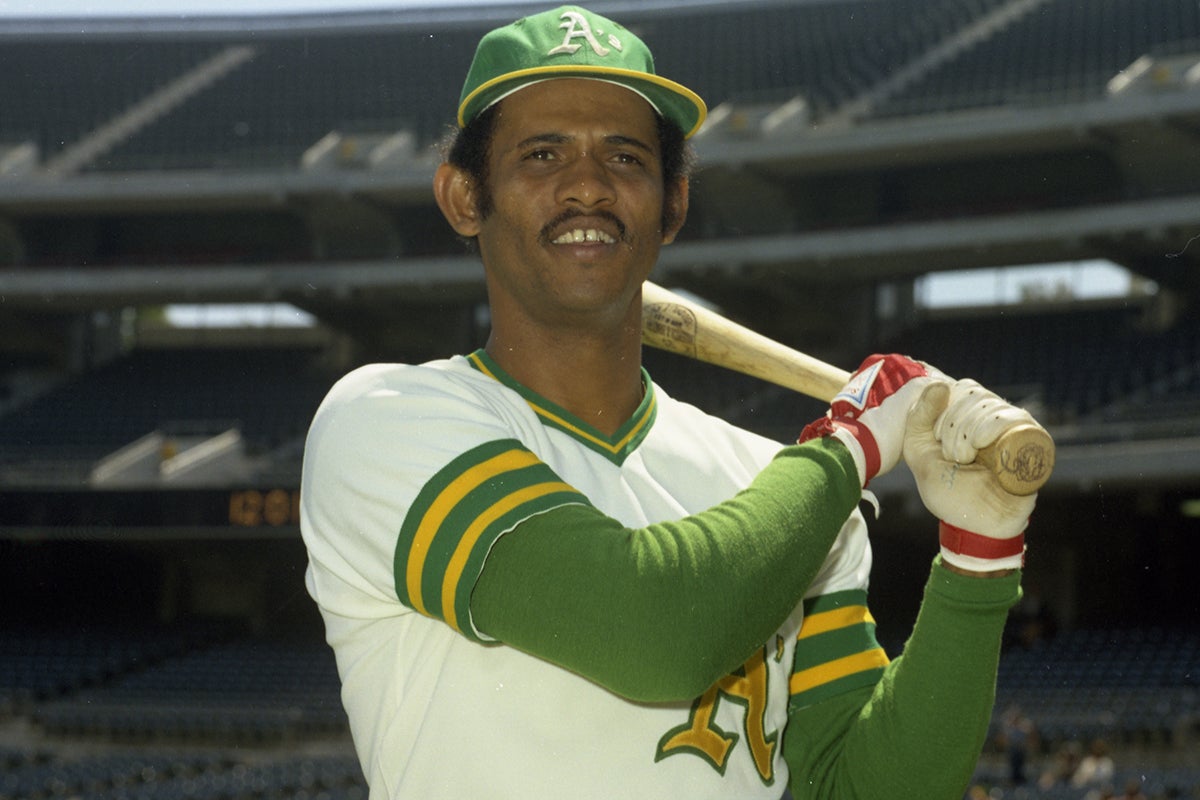
With the Reds trailing the series 2-games-to-1 but leading Game 4 by a 2-1 score in the bottom of the ninth inning, Mike Hegan grounded out against Pedro Borbón to leave the Reds just two outs from tying the series. Williams called on Gonzalo Márquez to pinch-hit for George Hendrick (who was replacing Jackson in center field), and Márquez singled to center. That brought Clay Carroll out of the Reds’ bullpen and pinch-running specialist Allan Lewis into the game for Márquez.
Gene Tenace followed with a single to left, and Williams used his second pinch-hitter of the inning – Don Mincher – to bat for Dick Green. Mincher singled to score Lewis and move Tenace to third, tying the game and bringing on pitcher Blue Moon Odom to run for Mincher.
Williams then called on Mangual to pinch-hit for Rollie Fingers. Mangual swung at the first pitch from Carroll, got jammed and bounced a ball to the left of Joe Morgan at second base that found the outfield grass to score Tenace to win the game.
“You’ve got to be lucky to hit,” Mangual told the Oakland Tribune after an inning that featured three pinch-hitters and two pinch-runners in an unlikely rally. “I thought it was going to be a double play when I saw Joe Morgan go for it. Then I saw it go through.
“I tell you, the things people do to you here. When Reggie Jackson got hurt, I expected to be playing. But now, I feel great! I feel happy. I don’t want to get traded, but I want to go someplace where I can play every day.”
For the dysfunctional Athletics, it was typical: Only in Oakland would a World Series hero ask for a trade in the middle of the series.
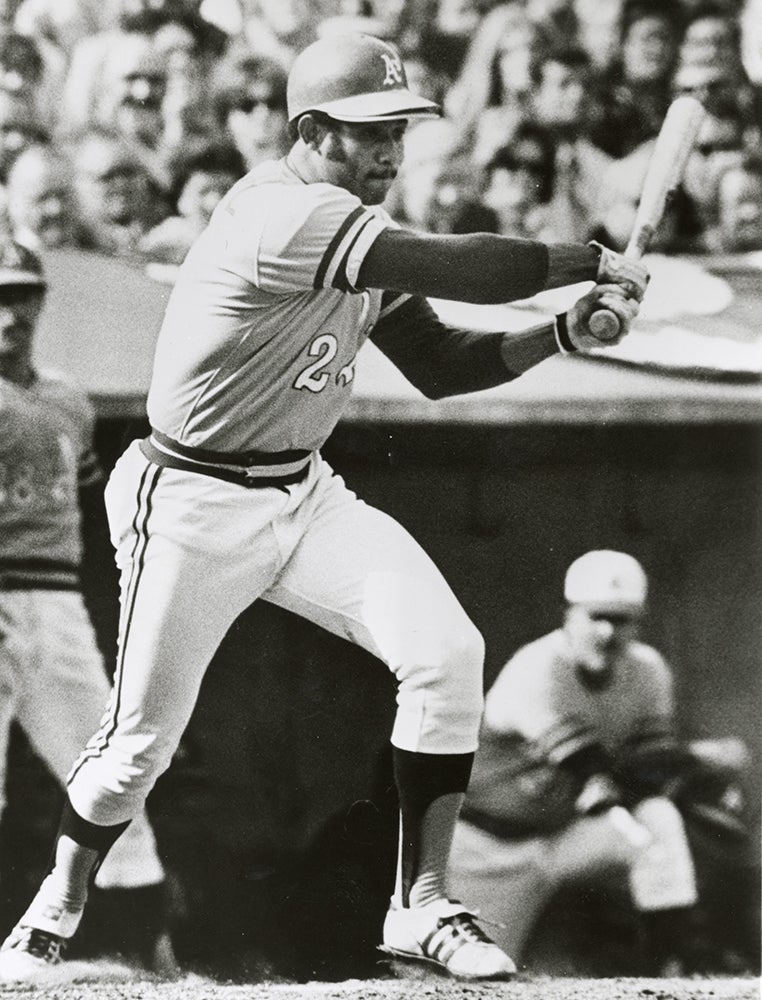
Mangual pinch-hit again in Game 5, grounding out in the eighth inning with runners on the corners and the game tied at 4. Williams originally called on Mincher to pinch-hit for Hendrick, but when Reds manager Sparky Anderson brought on lefty reliever Ross Grimsley, Williams countered with Mangual.
After the Reds took a 5-4 lead in the ninth, Tenace led off with a walk and was replaced by Odom on the bases before Dave Duncan singled to again put runners on the corners. But when Bert Campaneris popped out to Morgan down the first base line, Odom tried to tag up and score and was thrown out at the plate to end the game.
Mangual started Game 6 in center field and had two hits as the Reds won 8-1 in what turned out to be the only non-one-run game of the series. Then in Game 7, Mangual again started in center and went to third base in the first inning after hitting a ball that was ruled a three-base error on Reds center fielder Bobby Tolan. Mangual scored on a single by Tenace and later made the Athletics’ last out of the season at the plate by flying out to center to end the top of the ninth.
When Fingers retired Pete Rose on a fly ball with one on and two outs in the ninth, the A’s locked up a 3-2 win that clinched their first championship in Oakland.
Mangual suffered a torn chest muscle early in the 1973 season that relegated him to DH duty for a couple weeks. He played his way into and out of the lineup for much of the season, batting .224 in 74 games as Oakland won its third straight division title. But when new center fielder Bill North injured his ankle and was sidelined for the season in late September, Williams named Mangual as his center fielder in the ALCS vs. the Orioles.
After going 1-for-8 in the first two games, Mangual was benched in favor of Billy Conigliaro in Game 3. Mangual then pinch-hit for Vic Davalillo – Williams’ third starting center fielder of the series – in Game 4, popping out against Grant Jackson in the eighth inning of Baltimore’s 5-4 win. Davalillo started again in Game 5 and Mangual did not play in Oakland’s 3-0 victory that sent the A’s back to the World Series.
Mangual appeared in five games in the World Series against the Mets – all as a pinch-hitter or subsequent batter – and went 0-for-6 as Oakland defeated New York in seven games. Williams, exasperated by three years of working for Finley, resigned after the World Series.
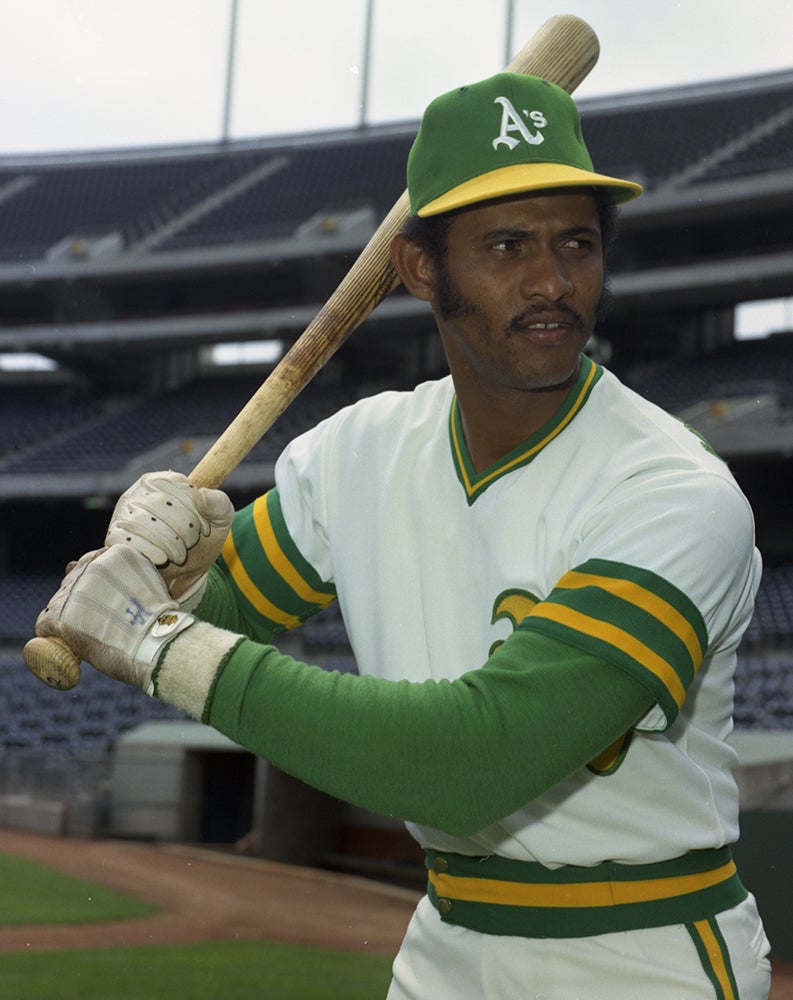
Mangual, meanwhile, expected to be playing elsewhere and not for new manager Alvin Dark in 1974.
“When I got the contract from the Oakland A’s around Christmas, I was surprised,” Mangual told the Oakland Tribune in the spring of 1974. “I thought I’d be traded because of all the trouble I caused last year and the year before.”
Mangual dropped 10 pounds during Puerto Rican Winter League play following the 1973 campaign in an effort to maximize his conditioning and told the media he expected to be dealt at any time. But Mangual remained with the A’s the entire season, playing in a career-high 115 games while hitting .233 with nine homers and 43 RBI.
He served as Oakland’s DH in Game 1 of the ALCS vs. the Orioles, going 1-for-4 in the Athletics’ 6-3 loss. He did not play, however, in any of the next three games – all won by Oakland as the A’s advanced to the World Series.
With no DH in the Fall Classic, Mangual played in only one game against the Dodgers and struck out vs. Mike Marshall to end Game 2 in his only time at-bat. But the A’s once again won the Fall Classic, making Mangual one of only 11 players who appeared in at least one game for Oakland in each of its three consecutive World Series wins.
Mangual appeared in 62 games in 1975, almost half of which came as a pinch-hitter. But he hit just .220 with one home run and six RBI. The Athletics won the AL West again but Mangual was not around to celebrate as the A’s waived him on Aug. 31, ending his season.
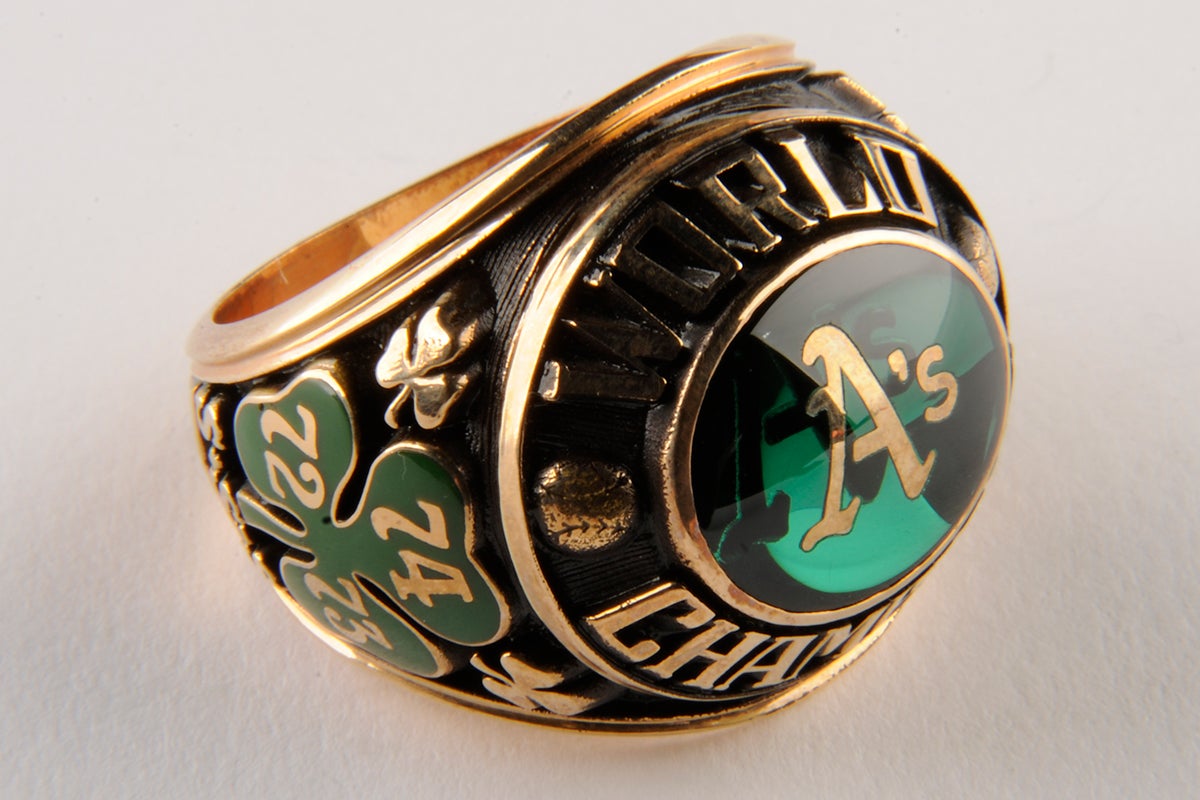
His roommate, Vida Blue, lamented the release of his friend.
“I don’t think I’ll ever room with anyone again,” Blue told the Oakland Tribune after recording his 18th win of the season the day after Mangual was waived. “I don’t think I could ever get along as well with anyone as well as I got along with Ángel.”
Meanwhile, Mangual’s brother Pepe had his best big league season in 1975, hitting .245 with 84 runs scored, 33 steals and 74 walks as the Expos’ everyday center fielder.
The A’s brought Ángel Mangual back in 1976 on a minor league deal and sent him to Triple-A Tucson to begin the season. He was recalled from Triple-A on June 1 when César Tovar was placed on the disabled list with a broken left wrist. But three weeks later, Mangual was sent back to Tucson when pitcher Mike Norris was activated. He appeared in eight games for Oakland that year, going 2-for-12 in what would be his last big league appearances of his career.
Mangual appeared in the Mexican League in 1977 and for Puerto Rico of the short-lived Inter-American League in 1979. Pepe Mangual, meanwhile, was traded from the Expos to the Mets in 1976 and played in his final big league games for New York in 1977.
Ángel Mangual passed away on Feb. 16, 2021, in Ponce, Puerto Rico, just a few miles down the road from his birthplace in Juana Diaz. Over seven big league seasons, Mangual batted .245 in 450 games. But he fulfilled the big league dreams that were inspired by Roberto Clemente. And in the end, Mangual had one more World Series ring – three – than his hero.
“When I was a little boy in Puerto Rico and I saw Roberto Clemente, I tried to (be) like him,” Mangual told the Oakland Tribune in 1972. “(I) tried to hit like him, tried to run like him.”
Craig Muder is the director of communications for the National Baseball Hall of Fame and Museum

